When I last discussed the Metro series I was in the middle of playing through its third entry, Exodus. The experience was utterly unique, as unlike its predecessors, Metro: Exodus took a bold step forward by near completely removing itself from it’s dark, dank, and iconic Moscow tunnel system and engaging on a tour of the surface of post-apocalyptic Russia, departing the cramped nuclear winter city to traverse barren deserts and sprawling swampland, completely shifting the once somewhat linear game series into a sprawling open world.
But of course, a journey is nothing without its characters, and while we once again step into the shoes of Artyom the Silent Spartan, he is, oddly enough, not the most interesting and dynamic character of the game. Sure he’s The Hero, but as I noted in my previous piece, Artyom’s character really sort of peaks in Metro: Last Light. It is that point in which he truly gets to come face to face with the darkest, most twisted aspects of humanity that haunt the Metro, and the point in which he achieves something like redemption by saving the life of an innocent creature and being an overall great guy.
Spoilers ahead! If you want the opportunity to experience Metro: Exodus for yourself first, the game is available on Xbox, PlayStation and PC.
So by the time we get to Exodus, Artyom is basically a badass Dark Knight for whom watching, sneaking, and sparing is child’s play. His “heel-turn” into a callous, shoot-first maniac is due far more to the player’s inexperience, preference, and/or sadism rather than a shift in the character himself.
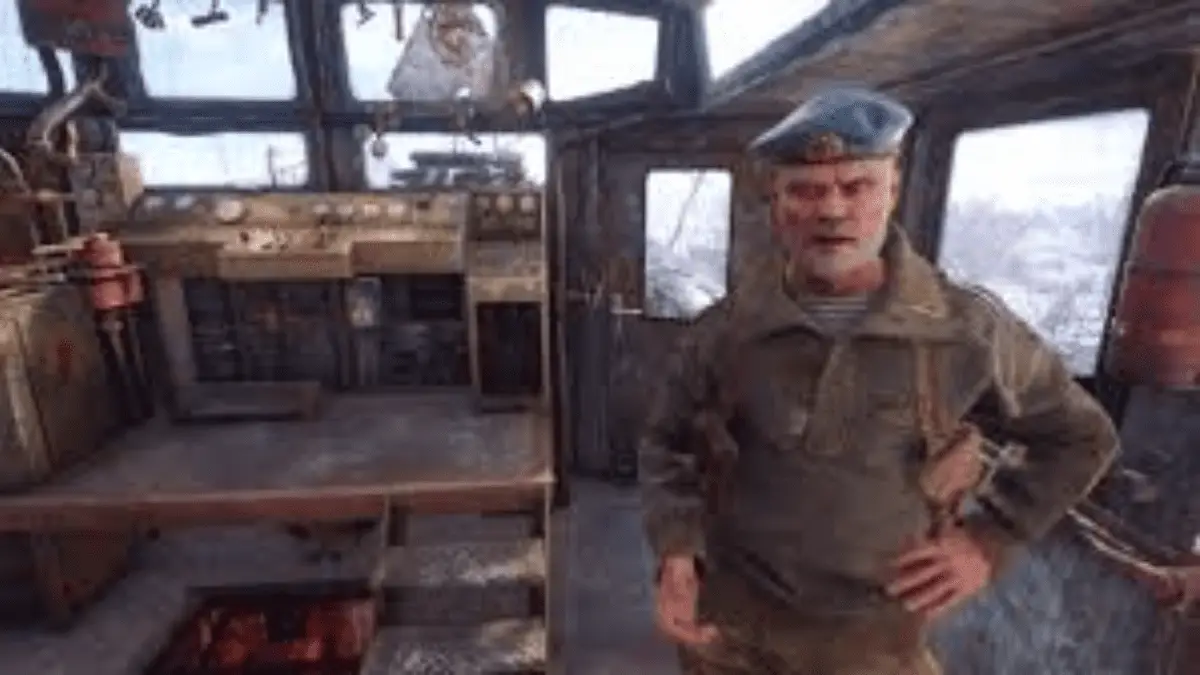
No, the character whose growth and arc we follow with intrigue is an NPC: the authoritative, no-nonsense Sviatoslav Konstantinovich Mel’nikov—or as he’s more commonly known in the games, Colonel Miller.
We meet Miller as far back as Metro: 2033, in the last quarter of the game as the leader of the Spartan Rangers, a military outfit dedicated to the protection of the Metro. His role is relatively brief, but gets expanded upon in Last Light, where he serves as a strict, cautious disapproving voice to Artyom’s moral torment. He makes it no secret that he would see the last surviving Dark One child killed, adamant that they are an abomination that must be destroyed for the protection of the Metro.
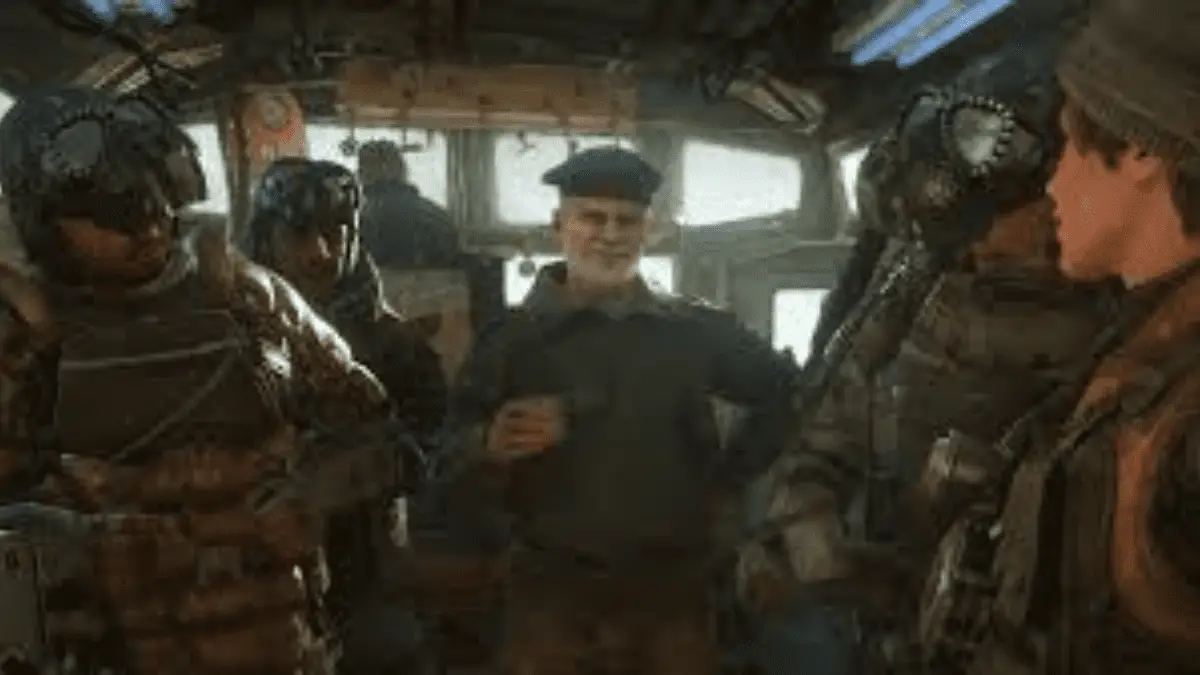
Of course, he is proven wrong as, having lost his legs and on the brink of death, it is in fact Artyom’s kindness to the child that saves Miller and the Spartans from losing control of the Metro to the Communist Red Line, the young Dark One rallying it’s surviving supernatural brethren to come to the Spartan’s aid.
Of course, while Miller is softened, he’s not completely shifted his stance. Artyom, while a good Spartan, is still seen to Miller as too much of a dreamer with his head in clouds, too busy trying to take a moral high road that it blinds him to their pragmatic reality. This doesn’t get any better by the time Exodus rolls around—the way Miller sees it, not only is Artyom a crackpot going up to the irradiated surface to search for life in a dead world, he’s a crackpot who is now Miller’s son-in-law, married to his spirited daughter and fellow Spartan Anya.
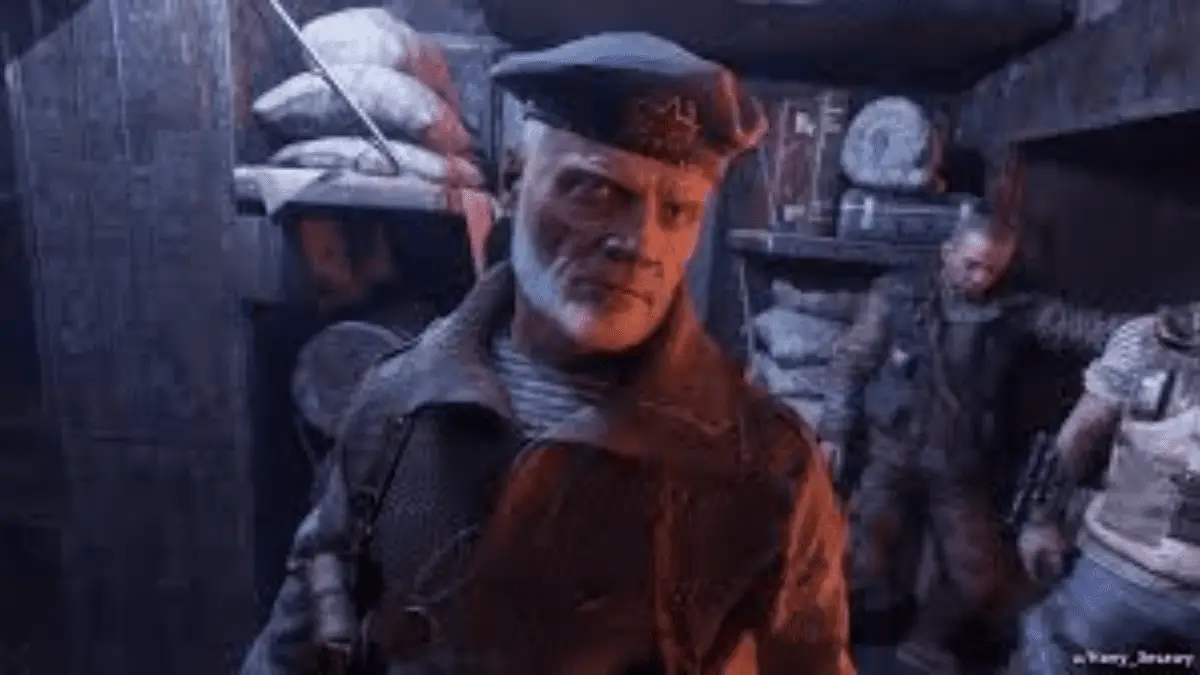
And it’s at this point where the generational divide really begins to hit. Miller believes that the Metro is all there is, and wants nothing more than his daughter and her wild husband to take advantage of his recent promotion and get a semi-comfortable shack at the largest, cleanest, and most well-guarded city station in Moscow, Polis. Meanwhile, Artyom and, to a lesser extent, Anya and their younger fellow Spartans have quickly begun to understand that their lives are stuck in a holding pattern.
Russia has survived, but that’s all it’s doing—surviving. Everyday is a battle to keep some fragment of their population alive. Everyday is an unceasing war against cold, radiation, disease, rats, mutants, and humanity itself. Most children in the Metro grow up with very little education or prospects, and the nature of the outside world, of a land that isn’t a sewer or an animal that isn’t trying to eat them alive is absolutely foreign to them. The Metro is a testament to the tenacity of mankind, but it has also very much become its prison, something Artyom is very much able to recognize.
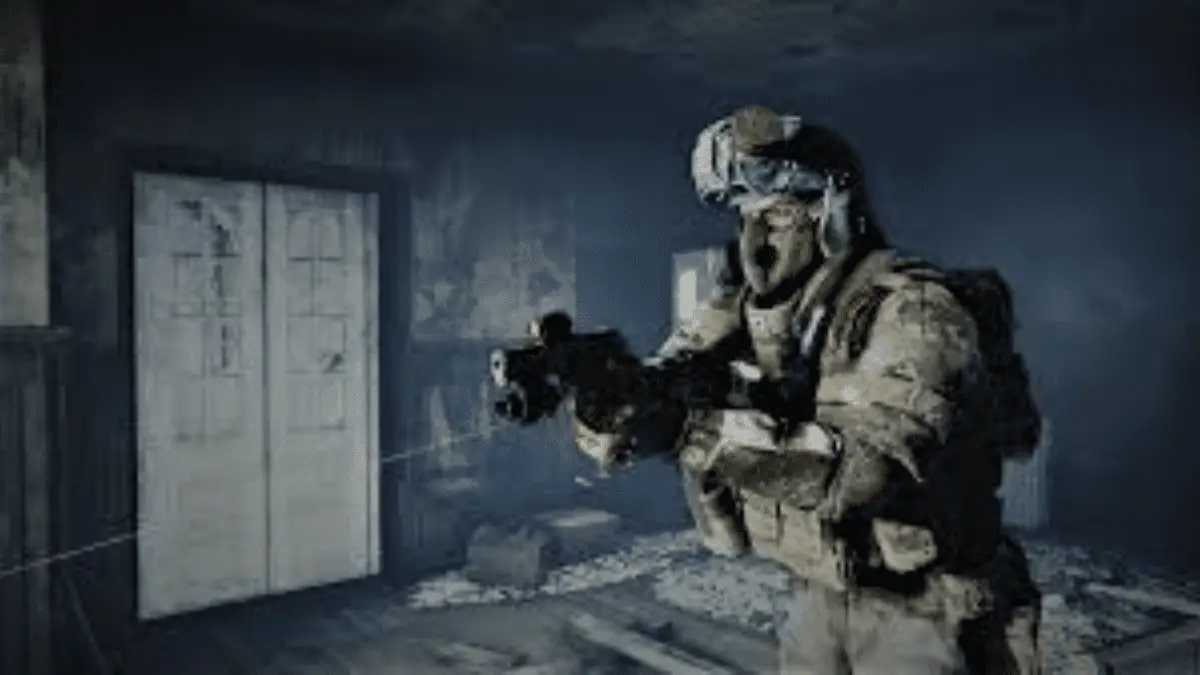
Matters reach a head when, upon venturing too close to the forbidden city edges, Artyom and Anya are apprehended by Russian Military, leading to a series of events that ends with them discovering that:
- The remnants of humanity aren’t limited to the ones cowering in Moscow
- The remains of the Russian government have been actively jamming radio signals from reaching the city for decades and
- Colonel Miller knew about it.
Understandably, Artyom and the rest of the Spartans aren’t exactly happy. But this event is one of the first glimpses we get past the stubborn facade of the Colonel. Miller, we begin to see, is scared.
A former GRU operative, Miller was essentially molded to put Russia first, no matter what cost, moral or otherwise. Except that’s not quite how matters tend to work out at the end of the world. Except Miller saw the world turned to ash, and practically drank himself to death until his wife beat him there first and left him to frantically sober up and attempt to repair the fractured relationship with his daughter. Except Miller fought war after war, under and above ground, lost his legs and comrades alike, and all he had to show for it is a series of half collapsed tunnels filled with the tired, hungry, and worn, bloodthirsty mutants eager to break through, more secrets, more lies.
Miller is tired. And when begin to see that he wants to hope, he wants something more, despite all his claims. That’s why, when Artyom and Anya end up stealing a train from the government, when given the choice between his daughter and the Spartans and his orders, he ends up choosing the former, even when it effectively sees him banished from Moscow.
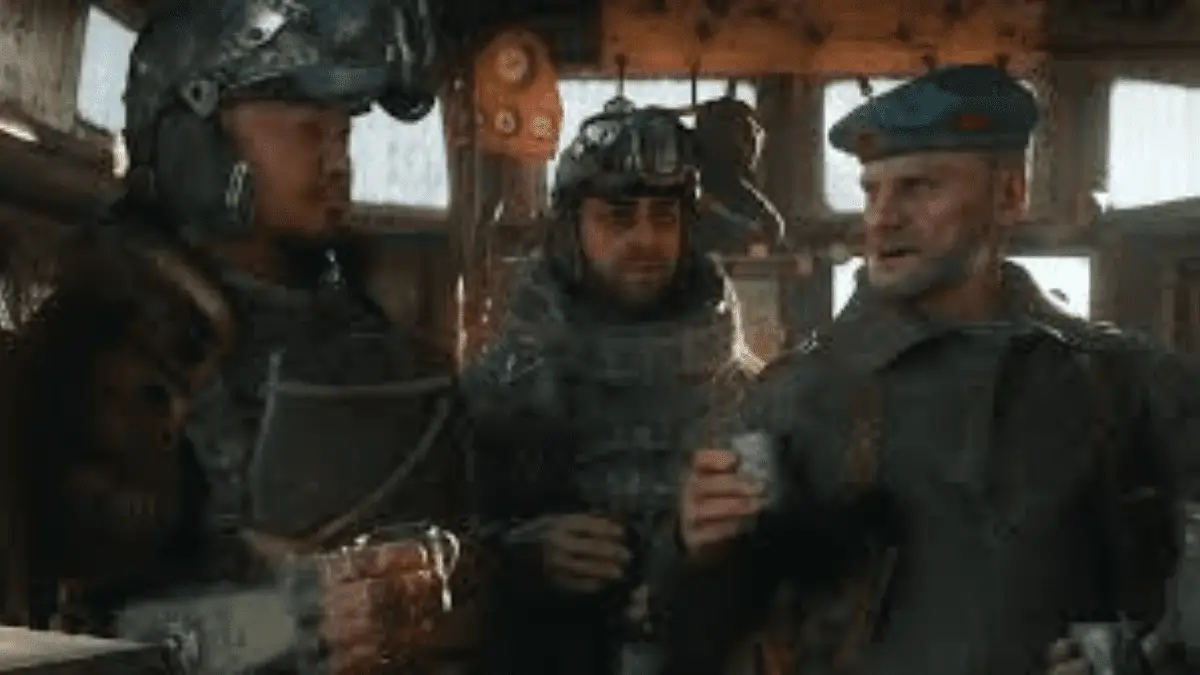
Granted, he’s not done a complete one-eighty; he’s far too stubborn for that. Instead he parrots his superiors’ beliefs about the country being embroiled in an ongoing war and tries to hold on to some semblance of his normal, insisting that they make their way to what is supposed to be another government bunker halfway across the continent, convinced that they officials there, higher ranking than his own back in the Metro, will pardon them for their actions and allow them to return back to the tunnels unscathed and forgiven.
And yet, despite his eagerness, there is a definite sign that he’s not quite the same gung-ho man who sought to murder a child. He’s baffled by the lack of opposing armies around and when you come across your first group of people, a village full of technophobic religious fanatics worshipping a giant mutated catfish, despite their reticence and his eagerness, he doesn’t encourage a wild assault. He authorizes a dangerous mission to retrieve a set of sleeper cars, just because they’ve picked up a mother and child and he refuses to have them sleep in shifts in a ramshackle train car.
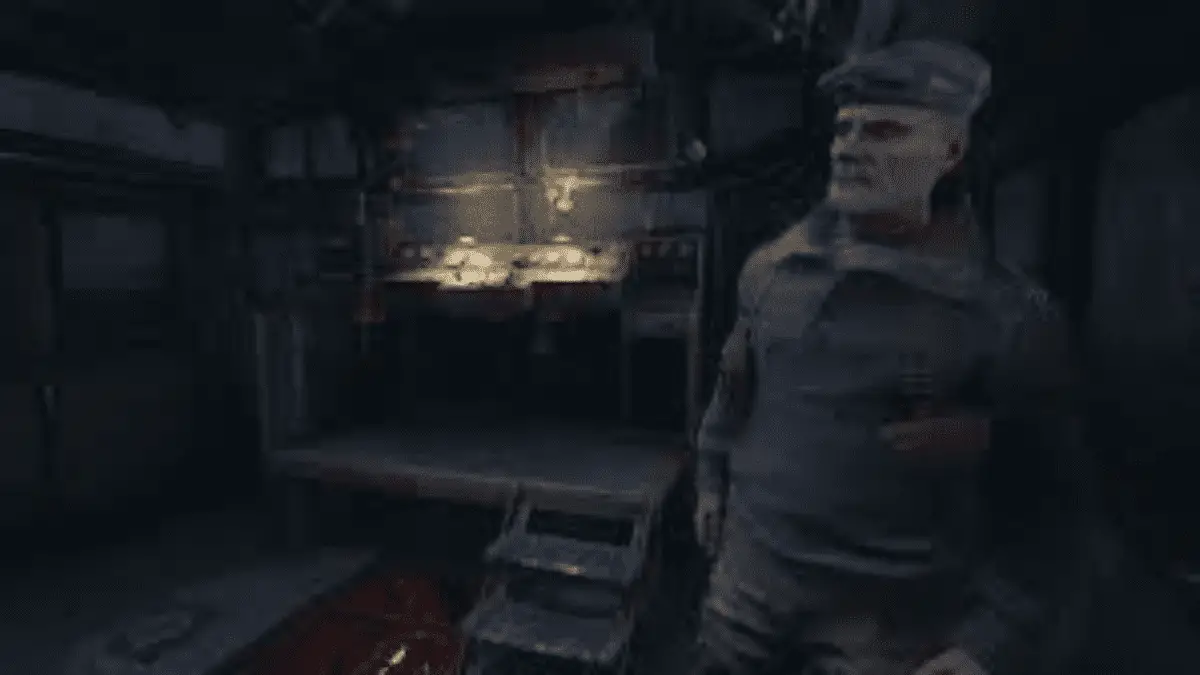
This all comes to a head when the group finally comes to the sought-after military outpost. It’s ramshackle, dirty, and dim, and more and more you see Miller can tell something is…not right. But nevertheless he persists–this is his chance, after all. He finally gets to see what and whom he’s been fighting for, finally gets the chance at recognition for his tireless efforts in the Metro, finally will be allowed to go back home, to the tunnels he has sacrificed so much for.
He nearly gets eaten instead.
His “government”, his “leaders”, have become little more than mad ghouls and cannibals, intent on literally taking another pound (or ten) of flesh from him. The bastion of order he has sought is nothing but a shell, the comrades in arms he expected are nothing but raving, drooling knife-wielding maniacs, and his vaunted superiors have been reduced to being headed by a mad Doctor who is more a butcher than anything else.
Miller is, of course, furious, heartbroken, and betrayed. But it is the final straw that begins the collapse of his stubborn pride and willful blindness, and it is needed. For the first time, he stops looking at the past and begins tentatively looking towards the future.
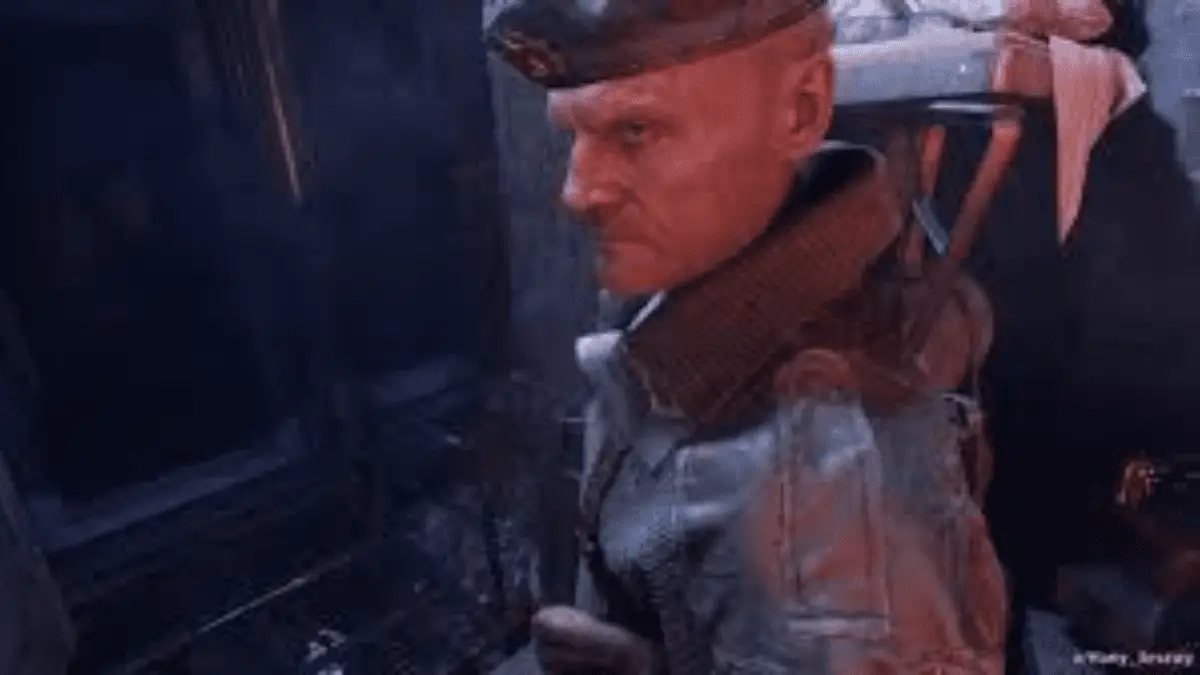
As you traverse the desert any desire to look back gets eviscerated as the group come across the self-proclaimed Baron, and he sees what happens when someone tries to hold on to old glories: Suffering. Stagnation. Reduction. The once grand Caspian Sea now a massive series of slave camps, filled with victims broken down and born into a horrific system of abuse, where bodies are property of self-proclaimed Lords of Fire, and women are considered acceptable payment. The only thing pushing against this is the youth in the form of freedom fighter Giul.
And again, as the group continues and you meet the Pirates and the Pioneers, young adults who straddle the line between fear and fury. These children grew up in a world made anew overnight, and in many cases, fell victim to it, pushing back against violent, adult bandits with their own brutality, their only saving grace being the memory of their kind school teacher and the lessons he tried (and in some cases, to his shame and theirs) failed to teach them.
And finally you have Kirill, a young child and more than likely the last surviving human in the highly radioactive city of Novosibirsk. As they search for life-saving medicine for a dying Anya, Miller becomes clearly impressed and fond of the boy. This is the purest meeting of two generations, and the culmination of Miller’s arc.
Because here is a direct symbol of the failure of Miller’s generation. A boy who considers himself a soldier, all alone, in a city of ghosts, where all he has to look forward to is scrounging for ever dwindling supplies and an inevitably short life as he succumbs to mutants or radiation. This is a boy who has known nothing but the Metro, who’s safe haven fell to human fear and the monster humanity created. This is a boy who may never know what grass looks like, or see anything flying in the sky that isn’t a giant winged bat. Kirill is a representation of where stagnation and paranoia has gotten humanity, and what fate awaits the Metro back in Moscow if something doesn’t change.
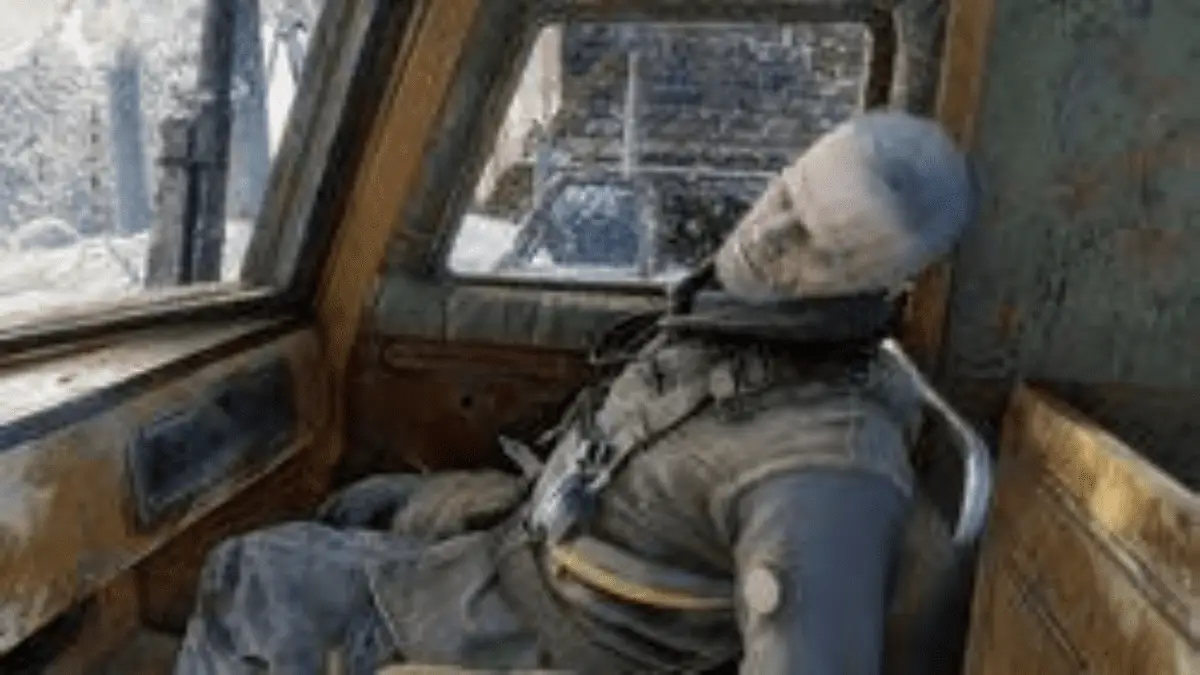
And it’s with that final understanding that Miller sacrifices himself to give Artyom a chance to survive. Because Miller can’t carry the future, can’t wave at it to stop and by now he’s finally learned that the best thing he can do is get behind the cart and push. Artyom and Kirill and everyone like them is a dreamer and in this new world, it’s what humanity needs. Someone willing to not only admit the dream, but pursue it.
And beyond that, it gives hope to an element I think is often overlooked: the ability for one to change.
In today’s world, just as there is an increased tolerance of differing lifestyles and opinions, there is also an increased open intolerance when that first tolerance isn’t immediately present. Of course sometimes it’s quite justified; bigotry should always be called out and questioned. And I have no illusions that often ad to many, it’s not worth the stress, energy and time to try to “change” a person. Nor is it always advisable, feasible, or even possible, no matter how much one insists otherwise—I hate the “I can fix them” trope as much as the next person, believe me.
But despite all of that…I think we’ve also seen a rise of a sort of purity culture. A culture where someone who is ignorant isn’t really afforded a chance, opportunity, or encouragement to learn and change and grow. It’s a rare sort of person who can not only change but is willing to, and it’s more than a little disheartening on occasions where they do, only to be told they’re still hot garbage for not doing so sooner.
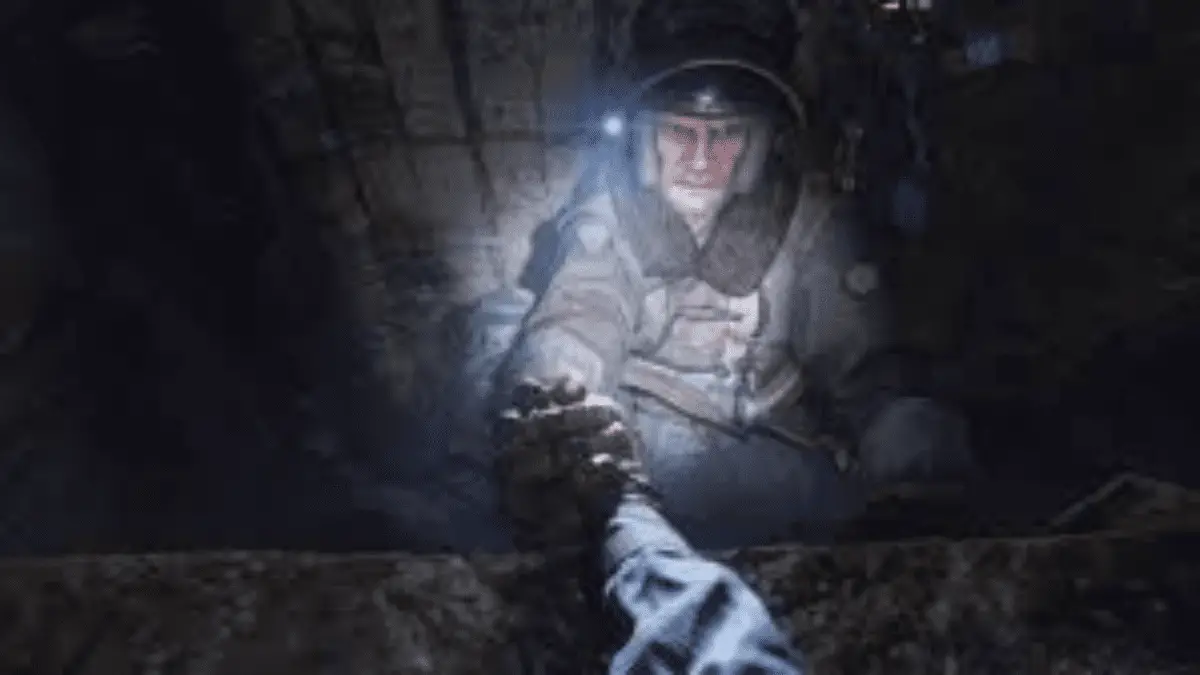
People don’t become who they are in a vacuum and every single one of us has moral failings. And despite what we’d like to believe otherwise, the world isn’t changing so long as we curbstomp Group X or shun Group Y. As idealistic and naive and as painful as it may sound, if we don’t begin extending notions of trust we’ll find ourselves repeating the exact same mistakes of forefathers. We may not be hunkering in metro tunnels in Moscow (yet), but the lesson remains the same.
In the end, despite Artyom being the hero, Miller stands out as the most human of the bunch. Someone who has made mistakes, who isn’t perfect, but nevertheless does what he thinks is right and is willing to change and open his mind when he realizes that it’s wrong. And maybe, just maybe, he can be a sign that even when we’re stuck fighting rats and and mutants wolves, one can still have faith…and extend it as well.
Images Courtesy of Deep Silver
Have strong thoughts about this piece you need to share? Or maybe there’s something else on your mind you’re wanting to talk about with fellow Fandomentals? Head on over to our Community server to join in the conversation!

